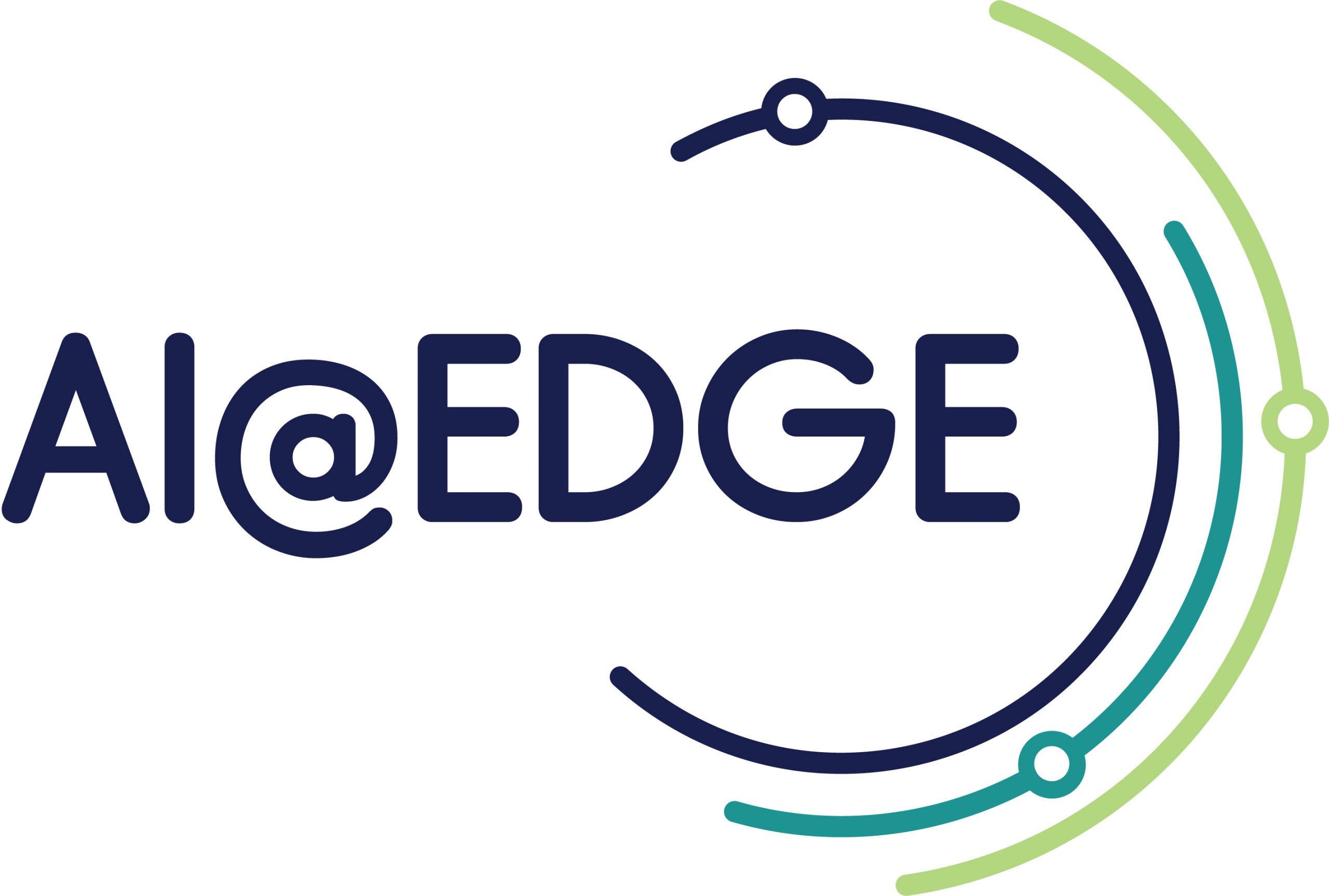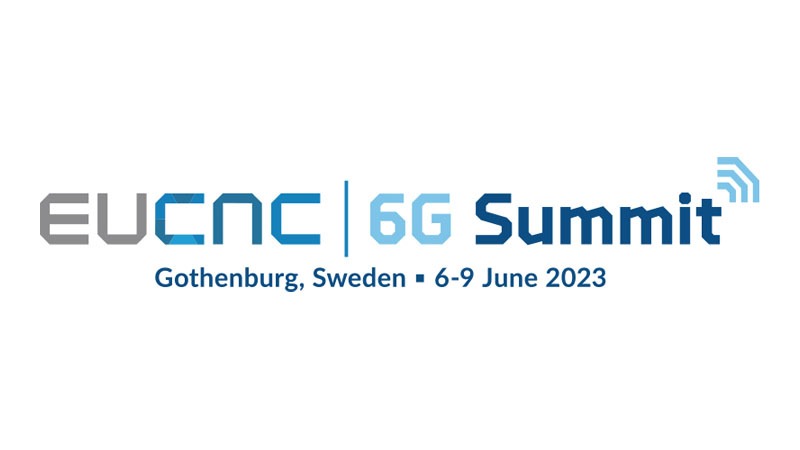On the 6th of June 2023, AI@EDGE will hold a half-day workshop titled “Exploring the Intersection of 6G and Artificial Intelligence: Unleashing the Potential of Next-Gen Technologies” at the EUCNC 2023 in Gothenburg, Sweden.
The panel will be moderated by Jovanka Adzic. She is a Technical and Project Leader @TIM R&D, Turin, Italy since 1995.
Jovanka Adzic
Technical and Project Leader @TIM R&D
Project Leader, Data Warehouse and Data Analysis Architect of advanced solution for Fraud Detection and Management based on Data Mining, Big Data Analytics and Near RT Data Warehousing.
Expert in data mining, data warehousing, machine learning, Telco fraud detection and analysis, recommender systems, taxonomies & ontologies, user profiling. Data Analysis Architect in network management and mediation, user profiling, churn analysis, revenue assurance, network assurance, network traffic profiling, network traffic prediction.
Meet our speakers!

Neiva Linder
Research Leader & Manager for the Network Management and Automation section at Research Area Networks, Ericsson Research
Title: AI@EDGE Network Architecture and Automation of Future Telecom Networks
Abstract: The EU project AI@Edge addresses key research questions on edge network intelligence regarding edge infrastructure, data driven architecture and network automation. We here present an overview of the proposed AI@Edge Architecture and selected solutions on network and service automation intelligence, data and network management, and distributed AI/ML requirements. Furthermore, we share our learnings on network automation challenges and unanswered research questions that will shape how we see automation in 6G.

Dipl.-Ing. & Ph.D. degrees from the School of Electrical and Computer Engineering, National Technical University of Athens
Research interests: 4G, 5G networks, optical networks (EPON, GPON, WDM-PON), testing and validation frameworks, prototyping activities, QoS in heterogeneous networks, sensors/actuators networks (IoT), middleware and distributed technologies.
Evangelos A. Kosmatos
Senior Solution Architect at WINGS ICT Solutions
Title: Beyond 5G with Network and Artificial Intelligence. The DAEMON approach.
Abstract: The DAEMON approach for designing a NI-native architecture for B5G systems will be presented. The proposed Network Intelligence plane (NIP) will be explained together with the accompanied taxonomy of NIP operations: Network Intelligence Service (NIS), Network Intelligence Function (NIF) and NIF Components (NIF-C). In addition the Network Intelligence Orchestration innovations will be illustrated. Finally the prototyping of an AI cooperative solution which follows the aforementioned approach will be explained.

Toktam Mahmoodi
Professor of communication engineering and Director of the Centre for Telecommunications Research (CTR) in the Department of Engineering at King’s College London.
Title: Transformations in mobile Networks
Abstract: We are observing two fundamental transformations in mobile Networks, one is the proliferation of automated processes with the presence of artificial intelligence, and the other is the extreme distribution and decomposition of network functionalities. These two advances together gave rise to e.g. the development of intelligence at the network edge, and the further adoption of distributed learning technologies in mobile networks. This talk will discuss the entanglement between the communication networks and the network compute fabric as one of the main key to success of such transformations.
Daniela Di Rienzo
Innovation Specialist & Technology Advisor at TIM
Title: AI@EDGE Network Architecture
Abstract: Edge Computing enables proximity of content/data and applications to end-users, meeting requirements of latency, security, resilience, and bandwidth. AI@EDGE Project propose a network architecture to deploy AI-based applications, at different network domains, that prevents AI-silos by offering reusable data and models to ensure scalable deployments and lower costs for operators. In order to bring Intelligence to the Edge, there are still some open questions and challenges to be addressed.

Konstantinos V. Katsaros
Head of the Intelligent Networks & Services I-SENSE Team at the Institute of Communication and Computer Systems (ICCS / NTUA), Greece
Title: Federated Learning Application Enablement for Beyond-5G Intelligent Automotive Services
Abstract: While a concrete and definite vision for 6G is only currently shaping, it is anticipated that it will be characterized by the integration of 6G-enabled services within a seamless cyber-physical world, fostering ubiquitous intelligence, and eventually unleashing the digital transformation of society. Increasingly powerful, beyond-general-purpose devices, will enable access to fine-grained, near-real time monitoring information of physical assets, fueling the emergence of a series of data centric AI/ML-enabled services, via online and often local learning processes. This talk will describe the first steps towards the enablement of such new workloads, as taken in the 5G-IANA project. Focusing on the Automotive sector, the talk will present the design of management & orchestration primitives aimed to facilitate the design, deployment and operation of Federated Learning applications at the extreme/far edge of the compute continuum. Further considerations on the emerging synergies and business prospects will be explored.

Nandana Rajatheva
Senior Member, IEEE & Professor at the Centre for Wireless Communications – 6G Flagship, University of Oulu, Finland
Title: AI-driven communication & computation co-design
Abstract: The focus is on the application of AI/ML methods for 6G. AI/ML-based network performance enhancement techniques show useful gains in spectral efficiency, channel coding and beam management overhead, in addition to showing capabilities to compensate the distortions caused by hardware impairments. These are investigated using end-to-end learning techniques to jointly optimize transmitter and receiver side RAN functions, and through compact receive or transmit side algorithms. The 6G networks are expected to become an intelligent and trustworthy platform for AI applications running either in a network domain or over the top. Design concepts for efficient implementation are described in terms of supporting network services, challenges in model training and real-time inference functions.
Nehal Baganal
Doctoral Student at the University of Duisburg-Essen
Title: Predictive Quality of Service for Cooperative and Connected Automotive Applications: Models, Architecture and Application
Abstract: The presentation will discuss developing and implementing a predictive quality of service (QoS) model for cooperative and connected automotive applications. The presentation will cover the architecture of the QoS model, including the collection and analysis of relevant data and the development of predictive models using federated machine learning techniques. Additionally, the results of the QoS model will be presented. The application of the QoS model in a cooperative and connected mobility scenario will also be discussed.

Alan Anderson
Researcher at Keysight Technologies
Title: First approaches to validate the 6G AI Air Interface
Abstract: Testing of air interfaces has previously been both deterministic and repeatable. As AI and ML methods are integrated into 6G candidate air interfaces, this fundamental expectation can no longer be relied on, as a model may learn from a previous test, or even rely on a network-side model outside the device under test. Since running exhaustive tests would take an extremely long time, Keysight Technologies is developing the tools required to validate this new and exciting paradigm. We will present results relating to testing of externally-trained ML models, methods to validate models during the design phase and over-the-air measurements.







